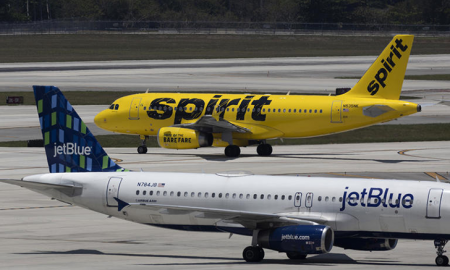
The Possibility of a 1970s-Like Inflation Boom Happening Again

Inflation refers to the rate at which the general level of prices for goods and services increases over a certain period. Inflation is a natural economic phenomenon that occurs as economies grow, but it has not always been stable, and history has proven that it can get out of hand. The 1970s, for instance, saw a significant surge in inflation rates worldwide, leading to what is often referred to as the “Great Inflation.”
Recently, there has been a lot of uncertainty and speculation about the possibility of a repeat of the 1970s-like inflation surge.

Ed BBC | The 1970s unprecedented inflation – AKA Great Inflation – is one of the worst parts of history.
What Is Causing the Inflation Revival?
Several fundamental economic factors could be behind the recent inflation uptick. One of the main drivers is the global supply chain disruptions caused by the Covid-19 pandemic. The restriction in international trade caused by the pandemic has led to a shortage of goods and services, especially for high-demand products, such as microchips, essential for manufacturing.
This bottleneck has resulted in an increase in the price of goods and services across different industries.
Furthermore, the monetary policy measures taken by central banks worldwide to mitigate the impact of the pandemic could also fuel the inflation uptick. In response to the pandemic, central banks have increased liquidity by lowering interest rates and increasing money supply, leading to an increase in demand for goods and services.
The higher demand amid the supply shortage in the economy has caused prices for goods and services to increase.

Anna / Pexels | If history does repeat itself, the COVID-19 pandemic would be the leading victim to blame.
The Impact of Inflation on Surgeon Businesses
The recent inflation surge is having a significant impact on businesses, big and small. For instance, small businesses that rely on imported goods are experiencing a spike in the cost of inventory, making it harder to generate profits at current pricing levels.
For big corporations, the rise in production costs means that they have to increase the price of products, thus leading to a decline in sales volumes and profitability. Furthermore, the continuous uptick means companies must make long-term decisions based on projected inflation rates. Something that is complicated given the unpredictability of inflation rates.
Impact of Inflation Surge on Consumers
The inflation surge also has a profound impact on consumers, especially those experiencing a rise in the cost of living. The increase in prices for goods and services means that people have less disposable income, thus leading to a decline in purchasing power.

Karolina / Pexels | One thing is for sure: End consumers are the worst hit of rising inflation.
The rise in essential commodity prices, such as food and energy, is already weighing heavily on consumers, who are finding it difficult to cope with the increased costs.
Parting Thoughts
While the recent inflation surge might not be as severe as the 1970s Great Inflation, inflation’s impact cannot be overlooked. The recent surge in global inflation might bring short-term gains for some industries. But it eventually leads to long-term losses for businesses and consumers.
The critical question is how central banks will manage inflation in the coming months, considering the delicate balance between liquidity and inflation. If the inflation surge persists, it might lead to an increase in interest rates, thus making it expensive to borrow and invest. In turn, this could negatively affect economic growth.
More in Finance & Business
-
`
Why You Need to Think Twice Before Buying a House
So, you have been scrolling through real estate listings, envisioning your dream kitchen, and even bookmarking paint colors for the nursery....
November 26, 2023 -
`
Santo Spirits: Sammy Hagar and Guy Fieri’s Joint Venture
In the world of business partnerships, some combinations might seem unconventional at first glance. But when you delve deeper into the...
November 16, 2023 -
`
Everything You Need to Know About Mortgage Rate Lock
You have probably embarked on the exciting yet nerve-wracking voyage of purchasing a home. Amidst the sea of paperwork, open houses,...
November 9, 2023 -
`
7 Effective Ways to Make Your Business More Sustainable
In an age of rising environmental consciousness, making your business more sustainable isn’t just a trend; it’s a necessity. Sustainable practices...
November 3, 2023 -
`
Housing Market Going Up? Then Why Not Rent?
“Buy a house! It is the best investment!” How many times have you heard that? Probably enough to make a drinking...
October 29, 2023 -
`
Surprising! Celebs Who You Didn’t Know Had a Master’s Degree
When it comes to celebrities, we often associate them with glitz, glamour, and blockbuster movies. But did you know that some...
October 17, 2023 -
`
Navigating the Housing Maze: The 7% Mortgage Rate Quandary
If there is one thing that this year has thrown our way (apart from those fascinating tech gadgets we did not know...
October 12, 2023 -
`
Where to Buy a House in the U.S With a $100K Salary
Got a cool $100,000 annual paycheck in your pocket? Cheers to that accomplishment! With such a financial cushion, dreams of homeownership...
October 6, 2023 -
`
The “Grave” Housing Crisis Forcing U.S. Homeowners to Sell Their Houses
Every culture has its dreams and aspirations. For those living in the United States, it has traditionally been an idyllic house, spacious and...
October 1, 2023















You must be logged in to post a comment Login